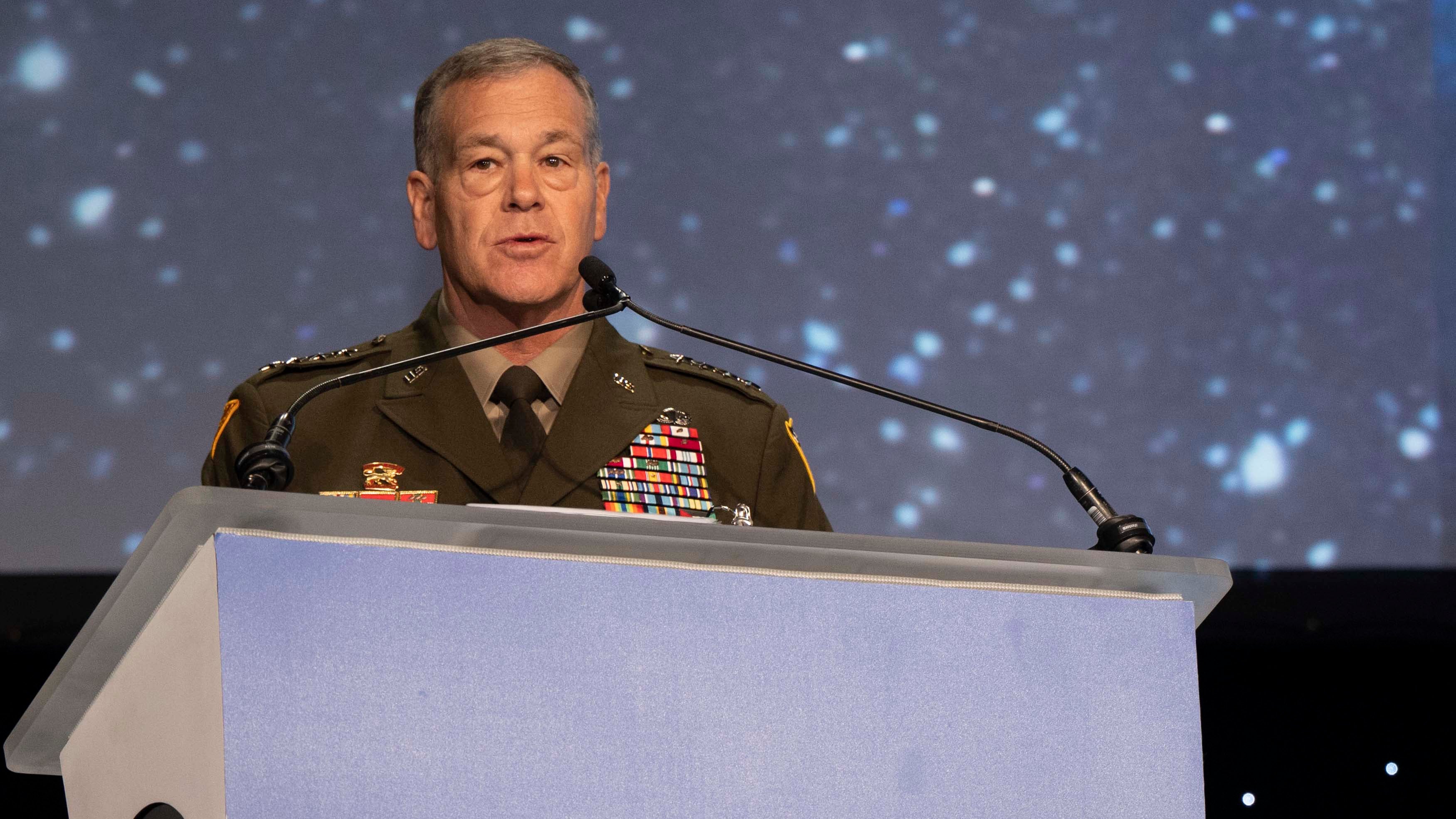Space Dominance Crucial to Army, Future Fight
Space Dominance Crucial to Army, Future Fight

On the future battlefield, the success of land forces will depend on critical space capabilities that are increasingly at risk of becoming vulnerable to America’s adversaries, the commander of U.S. Space Command said.
“The land component will be a very pivotal, critical element to any future fight, whether it’s today or 2040, but I would also tell you that space will make those formations, that Army, successful in all that it does,” Gen. James Dickinson said Nov. 8 during an event in the Strategic Landpower Dialogue series co-hosted by the Association of the U.S. Army and the Center for Strategic and International Studies.
Noting the Army’s dependence on space enablers such as satellite communications, GPS, missile warning and electronic warfare, Dickinson said that those “core space enabling effects will facilitate any future fight and a current fight today.”
Within Space Command’s mission to provide space capabilities to joint and combined forces, its work to protect and defend the space domain is critical because adversaries such as China and Russia have developed and continue to test their own growing capabilities.
That means U.S. assets are at risk of being exploited, even though the U.S. remains ahead in the space domain, said Dickinson, who has led Space Command since August 2020.
While it’s important for the U.S. to understand the capabilities being launched into space by its adversaries, it’s equally important for leaders to understand the reasons behind the adversaries’ actions, he said.
“I’m talking about actually understanding their philosophy, their thinking, how their leadership is incorporating space into their operations,” Dickinson said. He pointed out that Russia and China each established space commands in 2015, four years ahead of when U.S. Space Command and the U.S. Space Force were established in 2019.
“As we do operations around the world, particularly in the Middle East, we leverage, obviously, space very much,” Dickinson said. “They’re watching us, they’re understanding our philosophy and how we incorporate space.”
In just the past two years, Dickinson said, China has doubled the number of satellites it maintains in orbit, including anti-satellite weapons that can strike and destroy satellites and other military or commercial equipment in higher orbits.
China also has demonstrated the ability to put something into orbit at a high rate of speed, with the ability to circle Earth in 90 minutes and the potential to reenter wherever it wants. This presents “a challenge for us in terms of missile warning, missile defense tracking and custody of that capability,” Dickinson said.
“They’ve done technical demonstrations that show they have a direct [anti-satellite] capability that can hold our high-value assets or our satellites at risk,” Dickinson said. “We’ve also seen the fact that they can fly their own version of a space plane a couple of times, and we also know that they’re building capabilities from a terrestrial perspective that can have effects on space.”
For its part, Russia perpetrated a “destructive” action in November 2021 when it used an anti-satellite weapon to create a dangerous 1,500-piece debris field that still orbits today, Dickinson said. But Russia’s space activity has slowed since it launched the war against Ukraine in February 2022, he said.
Another of Space Command’s responsibilities is tracking and reporting on active and inactive debris and objects in space. Dickinson noted that when Space Command was established in 2019, “we tracked about 25,000 objects. Today, it’s over 45,000, and that’s just a short period of time, four years.”
Growth in the competitive sector of space, which Dickinson differentiated from the contested sector the military is responsible for, also is at risk from space debris and the potential for disruption.
The space domain, he said, is in the sights of the United Nations, which is “recognizing the fact that we need to have norms of behavior in space because of the dependency, not only of the military, but of our populace as well.”
“It’s not just the United States, it’s our allies and partners, too,” Dickinson said.

